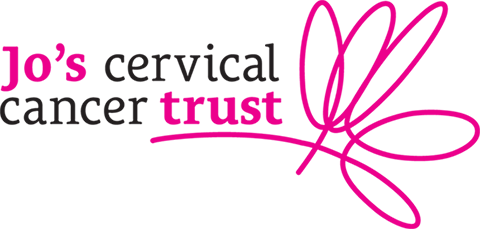There are no products in your shopping cart.
| 0 Items | £0.00 |
If you have questions or need to talk, call our helpline for information or support.
Have a question? Receive a confidential response via email.
Come to a support event to meet other people who have had a cervical cancer diagnosis.
Connect with others, share experiences and ask questions on our forum.
Individual support via phone or email, for anyone affected by a cervical cancer diagnosis.
Read about ways to cope with any effects of treatment and getting practical support.
Most people who have the HPV vaccine do not have side effects. Side effects that are reported after having the HPV vaccine are usually the type reported after any injection.
The information on this page is about the HPV vaccines Gardasil and Gardasil 9, which are offered in schools. It explains why the HPV vaccine is safe to have, as well as side effects linked to the vaccine and how to report them.
On this page:
The HPV vaccine has been approved for use. Between 2008 and 2019, more than 10 million doses of the HPV vaccine were given in the UK.
A vaccine can only be used if tests show:
These tests are called clinical trials and involve thousands of people having the vaccine.
The European Medicines Agency (EMA) was responsible for looking at the data from the trials. The data showed the HPV vaccine is safe, so the EMA approved a license for Gardasil to be used in the UK in 2006 and Gardasil 9 in 2015.
The HPV vaccine’s safety is monitored by the Medicines and Healthcare Products Regulatory Agency (MHRA).
The HPV vaccine may cause side effects. Most side effects are the type reported shortly after any injection – for example, having pain where the injection was given.
If you feel very ill after having the HPV vaccine, it is important to seek medical attention straight away.
Not everyone who has the HPV vaccine will have side effects.
Some vaccine side effects, such as a fever, can be similar to COVID-19 symptoms. You can get information about COVID-19, including symptoms, testing and self-isolation from the NHS in your area:
More than 1 in 10 people who have the HPV vaccine have:
Any pain, redness or swelling should get better after a few days. If you have a headache, it shouldn’t last for more than a few hours.
Fewer than 1 in 10 people who have the HPV vaccine have:
Fewer than 1 in 100 people who have the vaccine have:
Fewer than 1 in 1,000 people who have the HPV vaccine have:
Less than 1 in 10,000 people who have the HPV vaccine have:
Some people have reported other side effects after having the HPV vaccine. However, because these don’t come from controlled clinical studies, we can’t say whether they are definitely related to having the HPV vaccine, how often they happen or how many people have these side effects.
If you have any side effects after having the HPV vaccine, you should tell your doctor or nurse.
You can report any side effects that you think may be linked to the HPV vaccine using the Yellow Card Scheme. This helps us understand more about the vaccine, potential side effects and how to respond to them. You can phone the free Yellow Card hotline on 0808 100 3352 or report side effects online. The scheme is run by the Medicines and Healthcare products Regulatory Agency (MHRA).
You may have seen reports in the media claiming the HPV vaccine causes serious side effects, including:
All of these claims have been looked into by independent researchers as well as the health bodies who approve vaccines. There is no evidence that links having the HPV vaccine to developing these conditions. Research has shown the HPV vaccine is safe.
We know that hearing these claims can be worrying, so if you want to talk anything through, we are here. You can call our free Helpline on 0808 802 8000.
We hope the evidence on this page has helped answer your questions about the safety of the HPV vaccine. But if you have others, or want to talk anything through, we are here to help. Our free Helpline has trained volunteers you can call on 0808 802 8000 or email.
Thank you to all the experts who checked the accuracy of this information, and the volunteers who shared their personal experience to help us develop it.
We write our information based on literature searches and expert review. For more information about the references we used, please contact [email protected]

If you're worried about the HPV vaccine or potential side effects, our Helpline is here for you on 0808 802 8000 or over email.

